If online education degree programs align with your desire to positively impact others and you possess strong leadership and communication skills, they could be an excellent option for you.

There are several online degrees available that can help you find a career in teaching or education administration.
Editorial Listing ShortCode:
Throughout the course of a bachelor degree in teaching, you will likely choose a specialty based upon the ultimate career path that you would like to achieve. These concentrations range from elementary education to child development or postsecondary teaching.
Online Education Degree Programs
While the degree concentrations may differ in the title, most of the coursework for online teaching bachelor degrees covers the basic academic knowledge and foundation skills required to become a professional teacher.
The various skills that you will learn within your specific bachelors in education online program may cover the following topics:
- Foundations for education
- In-depth coursework in childhood development
- Exceptional children and special needs
- Classroom behavior and management
When you decide to earn a Bachelor of Education degree online, the next step is to choose the specific type of degree that aligns with your career goals and interests. These are some of the most common degrees for education professionals.
Select the program that most interests you to jump to that section of the guide:
- Education
- Early Childhood Education
- Education Administration
- Elementary Education
- Secondary Education
- Special Education
Exploring your options may help you determine which academic path is right for you.
Online Education Degrees

A bachelor’s program in education offers knowledge and skills in subjects like inclusion, curriculum development, differentiated instruction, and theories of learning. Depending on the degree focus, some students take courses in subject-specific areas like math and science.
Editorial Listing ShortCode:
An education major may enter college with the goal of becoming a teacher, but you are not limited to a single type of career. You might also become a librarian, school counselor, education consultant, or school administrator. Some graduates seek work outside of the education system and become corporate trainers or curriculum designers for private businesses.
Online Early Childhood Education Degrees

Early childhood education programs are tailored to students who want to work with children ranging from newborns to preschoolers. The curriculum usually includes subjects like literacy, child growth and development, and early intervention strategies.
Editorial Listing ShortCode:
Students pursuing early childhood education degrees may also learn how to recognize early indicators of disabilities, teach basic reading and mathematics, and create inclusive classroom environments. With this type of degree, you may be qualified to become a preschool teacher, private childcare provider, or tutor. A bachelor’s in early childhood education may also help you become a preschool or daycare director.
Online Education Administration Degrees

While many education bachelor’s degrees emphasize teaching skills, an education administration degree is designed for future leaders in academic environments.
During an education administration degree program, students learn about topics like community engagement, leadership skills, diversity and inclusion, and school finance. These are essential for administrators who oversee school operations, including budgets, training, and curriculum.
Editorial Listing ShortCode:
After completing your degree, you may be prepared to work as a principal or assistant principal, education coordinator, director of admissions, or superintendent. You may also have the opportunity to serve as a dean or administrator in a college or university.
Online Elementary Education Degrees

If you prefer working with children from kindergarten through sixth grade, an elementary education degree is likely the best option. During this program, you will learn about topics like child development, classroom management, and curriculum design.
Editorial Listing ShortCode:
Elementary school teachers are often responsible for instruction in math, reading, writing, and social studies. As a result, elementary education students learn about all these core academic areas. A bachelor’s in elementary education offers a path toward certification and licensure as a teacher, but there are also opportunities for work outside of the classroom, including instructional design and administration.
Online Secondary Education Degrees

A bachelor’s degree in secondary education trains future teachers in middle schools and high schools. Because students at these levels often classes dedicated to specific subjects, most teachers study a teaching area, such as English, math, or social studies.
Regardless of your area of focus, the coursework during your degree program will likely involve foundational subjects, including educational psychology, principles of American education, and adolescent growth and development.
Editorial Listing ShortCode:
Although many graduates of secondary education degree programs become teachers, others take on positions as principals, assistant principals, and instructional coordinators. You might also work as a tutor, policy advocate, or school counselor.
Online Special Education Degrees

Special education programs prepare professionals to work with students who have physical, intellectual, and emotional disabilities. These students often have needs that only highly trained individuals can meet.
In addition to the courses required for a general education degree, you may also take classes in topics like instructing of students with autism, teaching writing to students with disabilities, and conducting educational disability assessments.
Editorial Listing ShortCode:
A special education degree may help you become a certified and licensed teacher who works in a public or private school. Other career paths include becoming a special education administrator, instructional coordinator, or early intervention specialist.
Education Careers & Salaries
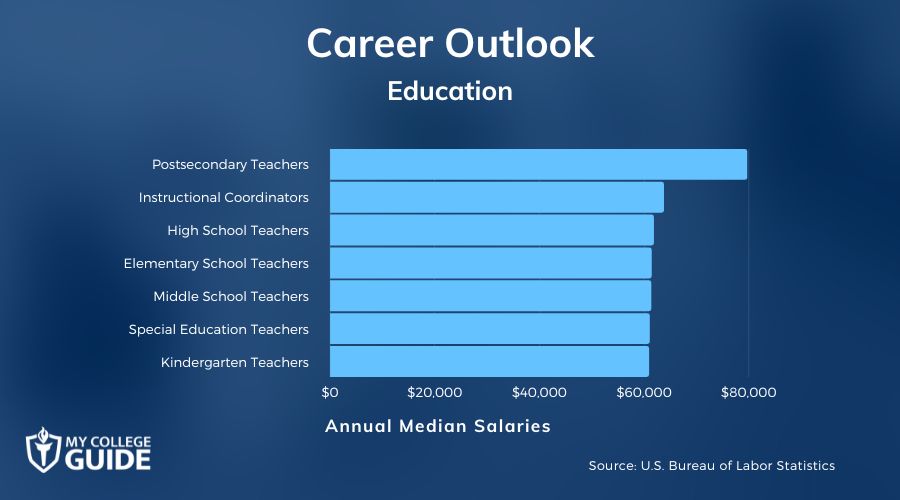
There are many options for career paths within the field of education and teaching. Most students that pursue online degree programs in education have goals of becoming teachers, but you can also find work in subfields like administration and management.
In the table below, we have put together a list of common career paths and mid-career salaries within the field of education and teaching according to the U.S. Bureau of Labor Statistics:
| Careers | Annual Median Salaries |
| Postsecondary Teachers | $79,640 |
| Instructional Coordinators | $63,740 |
| High School Teachers | $61,820 |
| Elementary School Teachers | $61,400 |
| Middle School Teachers | $61,320 |
| Special Education Teachers | $61,030 |
| Kindergarten Teachers | $60,900 |
| Career/Technical Education Teachers, Postsecondary | $59,840 |
| Adult Education Teachers | $59,720 |
| Substitute Teachers | $50,540 |
According to the BLS, employment in education, training, and library occupations is expected to grow 7% over the next 10 years, faster than the average for all occupations, providing 658,200 new jobs during this time period.
With steady growth, graduates of online education and teaching degrees can be confident in the career outlook for their chosen field. View a list of the top 40 Education or Teaching careers to see a more detailed list of jobs and salaries in this field.
Education Bachelor’s Curriculum & Courses

The curriculum for an education degree program depends on the college you attend and the concentration of your degree. These courses are common across all types of education degrees:
- Principles of Education: In this class, students explore the development of modern education and current instructional practices.
- Educational Psychology: Students in this course are taught about learning and motivation theories, objectives, classroom management, and assessment.
- Growth and Development: This course focuses on the physical and cognitive development of young children or adolescents.
- Literacy: Reading is the foundation for many other areas of learning, and this course informs students about how to teach literacy skills to emerging and growing readers.
- Introduction to Special Education: In this class, students receive an overview of the specific skills required to work with students with disabilities.
- Teaching English: This course introduces students to different approaches to teaching reading, writing, and communication.
- Teaching Mathematics: Future teachers taking this course learn about different strategies for providing successful mathematics instruction to students with different abilities and skill levels.
- Teaching Science: This class centers on methods and theories related to the teaching of science classes.
- Digital Media and Learning: Students in this class discover different kinds of technology and how they can positively impact learning environments.
- Arts in Education: In this course, students explore the importance of the arts to learning and overall development.
Students who are seeking state licensure are also generally required to complete a student teaching experience prior to graduation.
How to Choose an Online Bachelors in Education Program

Choosing an online bachelors in education program comes down to your own personal education and career goals.
Below we will discuss some key areas to consider when making the right choice for you.
- Accreditation: Accreditation is an essential aspect of a reputable online accounting degree program. Check to see if your chosen school is accredited. This will ensure that future employers view your degree as credible.
- Student-to-Faculty Ratio: It can be important for some that your online university has a strong student-to-faculty ratio to ensure you will be able to receive individualized instruction and support throughout the course.
- Academic Advising and Student Services: Student services and academic advising support of your online university can be an important factor in your long-term educational success. Look for a school that offers internship and career opportunities, mentorship programs, and more.
- Cost: The cost of each program is also an important factor as you may be on a strict budget. Compare various programs to see which one fits your budget.
- Degrees Offered: Be sure to check with each school you are considering to ensure they offer your chosen degree program as an online option. Also, compare the various programs’ coursework to ensure the coursework fits with your desired career goals.
It’s important to make an effort to do research into your potential colleges to ensure you are choosing a school that works for you and your personal needs.
Admissions Requirements

The application process for most online teaching degree programs involves similar criteria, including:
- Transcripts: Your official transcripts should include all your completed coursework and your GPA.
- Test scores: Some schools require applicants to submit minimum scores from standardized tests like the ACT and SAT.
- Recommendations: Former instructors and supervisors can provide detailed information about your strengths and abilities.
- Personal essay: A personal statement is an opportunity to express why you’re interested in and prepared for a program.
Depending on where you apply, you may also have to submit an official application, pay a fee, or participate in a virtual interview.
Education and Teaching Ongoing Education

It is important to note that while you may be able to take the majority of your coursework online, most teaching degrees require in-person internships and student teaching experiences in order to graduate from the program.
Editorial Listing ShortCode:
An online master’s degree in education and teaching typically takes an additional 2 years of schooling, but you may be able to complete your degree faster with various options through your school. The highest degree any teacher can achieve is a doctorate degree.
Through an online doctorate degree in education and teaching program, you will learn skills that focus primarily on the strategic management of schools and leadership education.
Online Teaching Degrees Accreditation
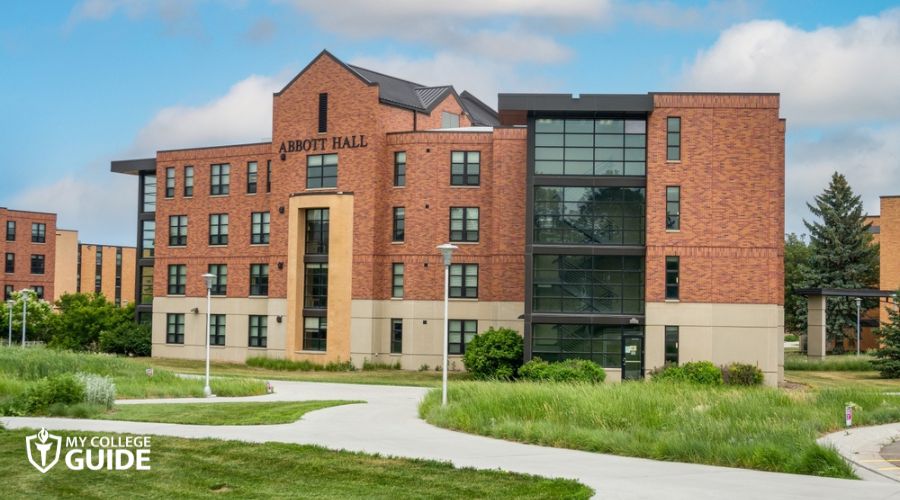
Accreditation is a key factor in the reputation and educational quality of a college or university. While it is a voluntary process, most reputable schools are accredited by at least one recognized agency to ensure that their course offerings are up to par with the quality that their students deserve.
To help you determine the legitimacy of accreditation, see if the agency is recognized by the U.S. Department of Education.
CAEP Accreditation
An online college for teaching can apply for accreditation by the Council for the Accreditation of Educator Preparation (CAEP). To receive accreditation status, they must prove that they meet the CAEP’s strict standards in areas like curriculum and faculty.
CAEP accreditation is a requirement for many state licensing agencies, so your ability to become a licensed teacher may depend on whether you attended an accredited program. Employers also tend to look more favorably on degrees from CAEP-accredited schools.
Education Licensure and Certifications

Many schools require teachers to obtain a teaching license issued by the Department of Education in the state where you plan to work.
Requirements for these licenses differ by state, but most include providing evidence that you have received a minimum of a bachelor’s degree in an approved major and passing special exams such as the Praxis. You may also have to pay a fee and complete a background check.
In addition to becoming licensed, teachers can also receive certifications that demonstrate that they have specialized skills. Possible certification areas include health education, music, physical education, and art.
Financial Aid and Scholarships
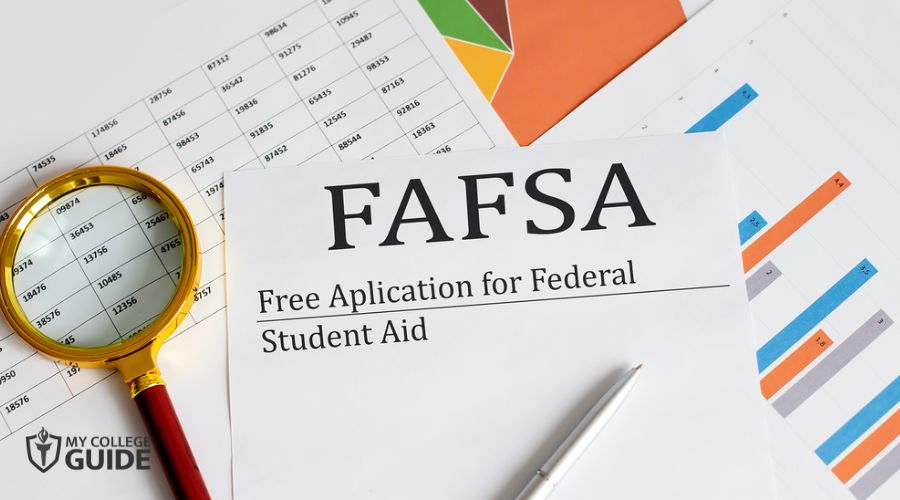
Paying for a bachelor’s in education online degree can be challenging, but financial aid may be the solution. Start by submitting a FAFSA, which determines your eligibility for federal loans and grants. Your state government may also offer financial aid programs.
Scholarships are another vital source of support. Search an online database or contact the financial aid specialists at your prospective school to find scholarships designed for your major and circumstances.
Is an Online Degree in Education and Teaching Right for Me?

When students consider education and teaching as their major, they may be surprised to hear of the many online degree opportunities available.
There are many advantages to pursuing an education and teaching degree online, including:
- Virtual interaction with a diverse group of students
- Ability to schedule general courses for a time that works around your student teaching requirements
- Online access to extensive research and library resources
- Flexibility to pursue high-level degrees at a faster pace than traditional education
Consider what is best for your personal situation when deciding on an online degree program.
What Can I Do With an Education Degree?

An education degree is a solid foundation for students who want to work in any aspect of education, including teaching, administration, and curriculum design. It’s also well-suited to a career as a tutor, policy developer, or education consultant.
Editorial Listing ShortCode:
Educators and related professionals often earn competitive salaries, depending on where they work and their level of experience. For example, according to the Bureau of Labor Statistics, high school teachers earn median annual salaries of $61,820. Teacher assistants, who are not required to hold a bachelor’s degree, earn much lower median salaries of $29,360 per year.
How Long Does It Take to Get an Online Bachelor’s Degree in Education?

The amount of time it takes to earn a bachelor’s degree in education depends on your enrollment status. Most full-time students who attend a traditional, 16-week semester graduate within four years. Part-time students may need additional time to complete their degrees.
Some colleges offer accelerated programs that operate on an 8-week semester, including summer courses, allowing students to finish their degrees in less time. If you have dual-enrollment credits or transfer credits, that may also shorten the timeframe for your degree.
What Jobs Can You Get With an Education Degree Besides Teaching?

For many students, an education degree is a path to a teaching career, but some professionals prefer to work outside of the classroom. Possible job opportunities for education majors who prefer not to teach include:
- Librarians
- Instructional designers
- Academic administrators
- School or career counselors
- Corporate trainers
In each of these positions, graduates of education programs can implement the skills that they gained in different ways. For example, librarians who have an in-depth knowledge of literacy can strategically develop effective reading programs.
Is an Online Bachelors Degree in Education Worth it?

Yes, an online bachelors degree in education is worth it for many students. Working in education can be extremely rewarding because you can influence the future success and growth of children.
Editorial Listing ShortCode:
Education is also an essential aspect of life for cultures all over the world, so the need for well-trained teachers is likely to remain steady for the foreseeable future. The Bureau of Labor Statistics projects that the growth rate for school principals, high school teachers, elementary school teachers, and special education teachers will be as fast as average over the next several years.
Universities Offering Online Bachelor in Education Degree Programs
Methodology: The following school list is in alphabetical order. To be included, a college or university must be regionally accredited and offer degree programs online or in a hybrid format.

Appalachian State University offers a BS in Middle Grades Education. Coursework is fully online, but the program does require the completion of a student teaching internship. The curriculum is designed to prepare for middle school social studies or science teaching. The completion of 120 credit hours is required to graduate. Courses follow a regular semester schedule and are offered during the fall, spring, and summer.
Appalachian State University is accredited by the Commission on Colleges of the Southern Association of Colleges and Schools.

Arizona State University offers several education degrees. These include a BAE in Educational Studies, a BAS in Early Childhood Studies, and a BAE in Educational Studies – Instructional Design. These programs do not lead to teacher licensure. These programs are fully online. They require the completion of 21 to 41 classes for a total of 120 credit hours. Courses are 7.5 weeks long.
Arizona State University is accredited by the Higher Learning Commission.

Bay Path University offers several education degree programs, including a BA in Early Childhood Education and a BA in Elementary Education. Both programs lead to licensure. Bay Path also offers a non-licensure BA in Education Studies. Courses are fully online and asynchronous and completed in an accelerated format.
Bay Path University is accredited by the New England Commission of Higher Education.

Brenau University offers a BS in Elementary Education, a BS in Middle Grades Education, and a BS in Special Education. All programs are online and available on campus. The programs require the completion of student teaching and are designed to lead to licensure. Courses follow a semester schedule, with start dates in the fall, spring, and summer.
Brenau University is accredited by the Southern Association of Colleges and Schools Commission on Colleges.

Concordia University – Wisconsin offers several accelerated and online degrees in education. Programs are offered in elementary education, secondary education, and special education. The programs require the completion of 120 to 138 credits, including student teaching. Courses are 8 weeks long, and there are several start dates offered each year. Each of these programs can potentially be completed in just 3 years.
Concordia University – Wisconsin is accredited by the Higher Learning Commission.

U.S. News & World Report ranked Drexel University among the best schools in the country for online undergraduate education. Drexel offers a non-certification BS in Education, a BS in Elementary Education, and a BS in Special Education. These programs require the completion of 180 to 182 quarter credits. Courses are taken in an accelerated format, with four terms each year.
Drexel University is accredited by the Middle States Commission on Higher Education.

East Carolina University offers BS degrees in education through Partnership Teach. Students must transfer from a North Carolina Community College. Programs are offered in elementary education, middle grades education, and special education. All coursework is online, but there are field placement and internship requirements. Courses follow a regular semester schedule and are offered in the fall, spring, and summer.
East Carolina University is accredited by the Southern Association of Colleges and Schools Commission on Colleges.
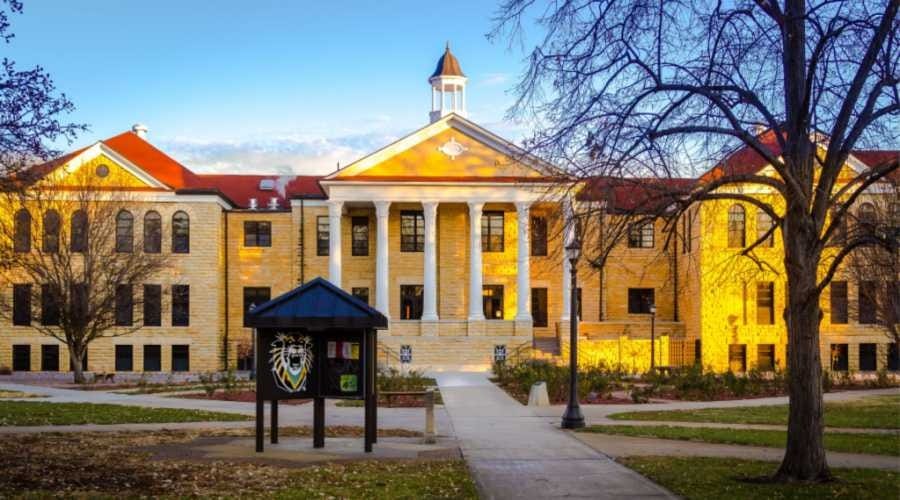
Fort Hays State University offers a BS in Education (Early Childhood Unified) and as BS in Elementary Education. Those majoring in Elementary Education may also pursue a minor in Special Education. Courses are online, but some on-campus options are available and there are student teaching requirements. Courses are 8 or 16 weeks long and are offered during the fall, spring, and summer.
FHSU is accredited by the Higher Learning Commission.

Franklin University provides several options for students wanting to become teachers. Students with associate degrees may pursue a BS in fields such as primary education or middle school education. Students with a bachelor’s in another field may earn licensure. All coursework is fully online, but there are several internship and practicum requirements.
Franklin University is accredited by the Higher Learning Commission.

Grand Canyon University offers several online education degrees, including BS degrees in elementary education, early childhood education, and educational studies. All coursework is entirely online, but student teaching must be completed for licensure. Courses are conducted in an accelerated format, and there are start dates offered each week.
Grand Canyon University is accredited by the Higher Learning Commission.
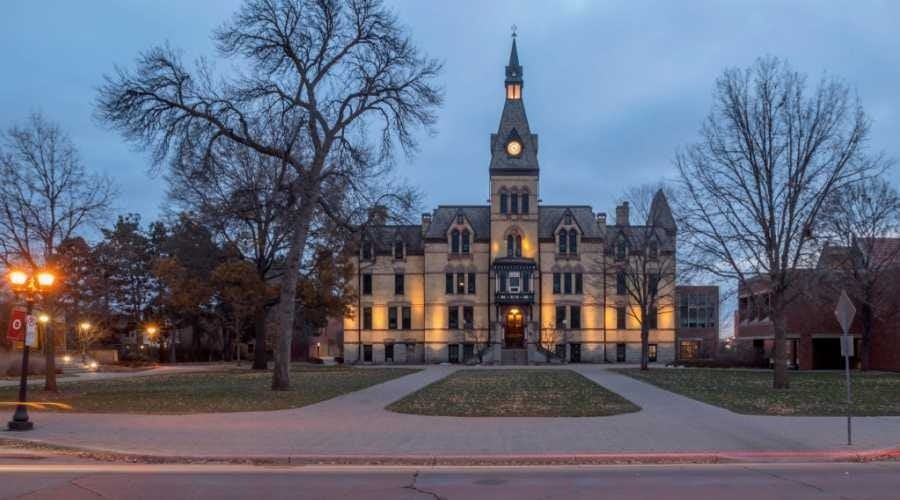
U.S. News & World Report named Hamline University among the best schools in the country for undergraduate teaching. Hamline offers a BA in Education through an online degree completion program. The program is designed for students already working in a K-12 school and leads to licensure. Courses are 8 weeks long.
Hamline University is accredited by the Higher Learning Commission.

Liberty University offers a BS in Elementary Education. The program is fully online and does not lead to state licensure. It requires the completion of 120 credit hours, and up to 75% of the credits may be transferred in. Courses are 8 weeks long, and there are several start dates offered throughout the year.
Liberty University is accredited by the Southern Association of Colleges and Schools Commission on Colleges.

Mayville State University offers several degree options for students seeking careers in education, including degrees in elementary education, physical education, and special education. All programs are fully online, with synchronous and asynchronous components. Courses follow a regular semester schedule and are offered in the fall, spring, and summer.
Mayville State University is accredited by the Higher Learning Commission.

Mississippi State University offers a BS in Elementary Education with concentrations in Early Childhood and Middle School. All coursework is online, but there are field experiences required that may be completed locally. The program only leads to licensure in Mississippi, but other states may offer reciprocity. Courses follow a regular semester schedule.
Mississippi State University is accredited by the Southern Association of Colleges and Schools Commission on Colleges.

National University offers a BA in Early Childhood Education, a BA in Early Childhood Development, and a BA in Social Science. The Childhood Development and Social Science degrees are designed to lead to licensure in California. Courses are fully online and are 4 weeks long. There are multiple start dates throughout the year. The programs require the completion of 180 quarter credits.
National University is accredited by the WASC Senior College and University Commission.

Texas Tech University offers a BS in Education through its TechTeach Across Texas program. This program is a 1 year, accelerated, teacher preparation program for earning licensure in Texas. The curriculum is designed to lead to certification in the chosen major content area, ESL, and special education. Teaching experiences must be completed in a district partner school. The completion of 120 credit hours is required to graduate.
Texas Tech University is accredited by the Southern Association of Colleges and Schools Commission on Colleges.

The University of Arizona offers a BA in Education Studies and a BA in Early Childhood Education through the school’s Global Campus. These programs are offered fully online. Courses are 5 to 6 weeks long and taken one at a time. There are several start dates offered throughout the year. These programs do not lead to licensure.
The University of Arizona is accredited by the Higher Learning Commission.

The University of Arkansas offers a BS in Education with a concentration in Educational Studies. The program is entirely online and does not lead to licensure. Students may seek licensure after graduating. A minimum of 120 credit hours must be completed to graduate. Applicants must be employed by an Arkansas school to qualify.
The U of A is accredited by the Higher Learning Commission.

U.S. News & World Report named the University of Central Florida among the most innovative schools in the country for online education. UCF offers a BS in Career and Technical Education and a BS in Exceptional Student Education – Learning and Language. Both programs are fully online and require students to complete 120 credit hours. Courses are conducted in an accelerated format.
The University of Central Florida is accredited by the Southern Association of Colleges and Schools Commission on Colleges.

The University of Missouri offers several degrees in education, including a BES in Educational Games and Simulation Design and a BS in Early Childhood Education in a Mobile Society. These are degree completion programs. Courses are fully online, but field experiences may be required. Courses follow a semester schedule.
The University of Missouri is accredited by the Higher Learning Commission.

The University of Phoenix offers a BSE in Early Childhood Education and a BSE in Elementary Education. The Elementary Education program is designed to lead to licensure. All coursework is fully online, and 120 credit hours must be completed to graduate. Most courses are 5 weeks long, and there are up to 12 start dates offered each year.
The University of Phoenix is accredited by the Higher Learning Commission.

The University of the Cumberlands offers bachelor’s degrees in elementary education, middle school education, and interdisciplinary early childhood education. Courses are mostly online, but short residencies are required. Some programs lead to licensure and require student teaching. Courses are 8 or 16 weeks long. There are several start dates offered throughout the year.
The University of the Cumberlands is accredited by the Southern Association of Colleges and Schools Commission on Colleges.

Walden University offers a BS in Early Childhood Studies and a BS in Elementary Education. Both programs are fully online, and the Early Childhood program is competency-based. Courses are offered in quarter semesters with several start dates throughout the year. Applicants must be 21 or older or have some college experience to qualify.
Walden is accredited by the Higher Learning Commission.

Western Governors University offers several education degrees, including a BA in Elementary Education and a BS in Secondary Mathematics Education. Most programs lead to licensure, and professors help students meet individual state requirements. A flat fee must be paid each term, and as many credits as desired may be earned during this time. Courses are self-paced.
Western Governors University is accredited by the Northwest Commission on Colleges and Universities.

Wilmington University offers a BS in Education Studies. This is a degree completion program that does not lead to licensure. It requires the completion of 30 to 33 credit hours. Courses are conducted in an accelerated format. The program offers four concentrations: Early Childhood Education, Elementary Education (K-6), Middle Level Education (6-8), and Skilled and Technical Sciences.
Wilmington University is accredited by the New England Commission of Higher Education.
Getting Your Bachelor Degree in Education Online

Whether your dream is to teach kindergartners how to read or high schoolers how to do complex mathematical equations, a bachelor’s degree in education may help you reach your goal. Earning a degree is essential for prospective teachers pursuing licensure.
Completing an education degree is also beneficial if you want to become an administrator, advisor, counselor, or consultant who specializes in education. Over the course of your studies, you will learn the role that education plays in a successful society and how you can contribute.
Begin your journey toward your dream career today by researching accredited online colleges for education.
